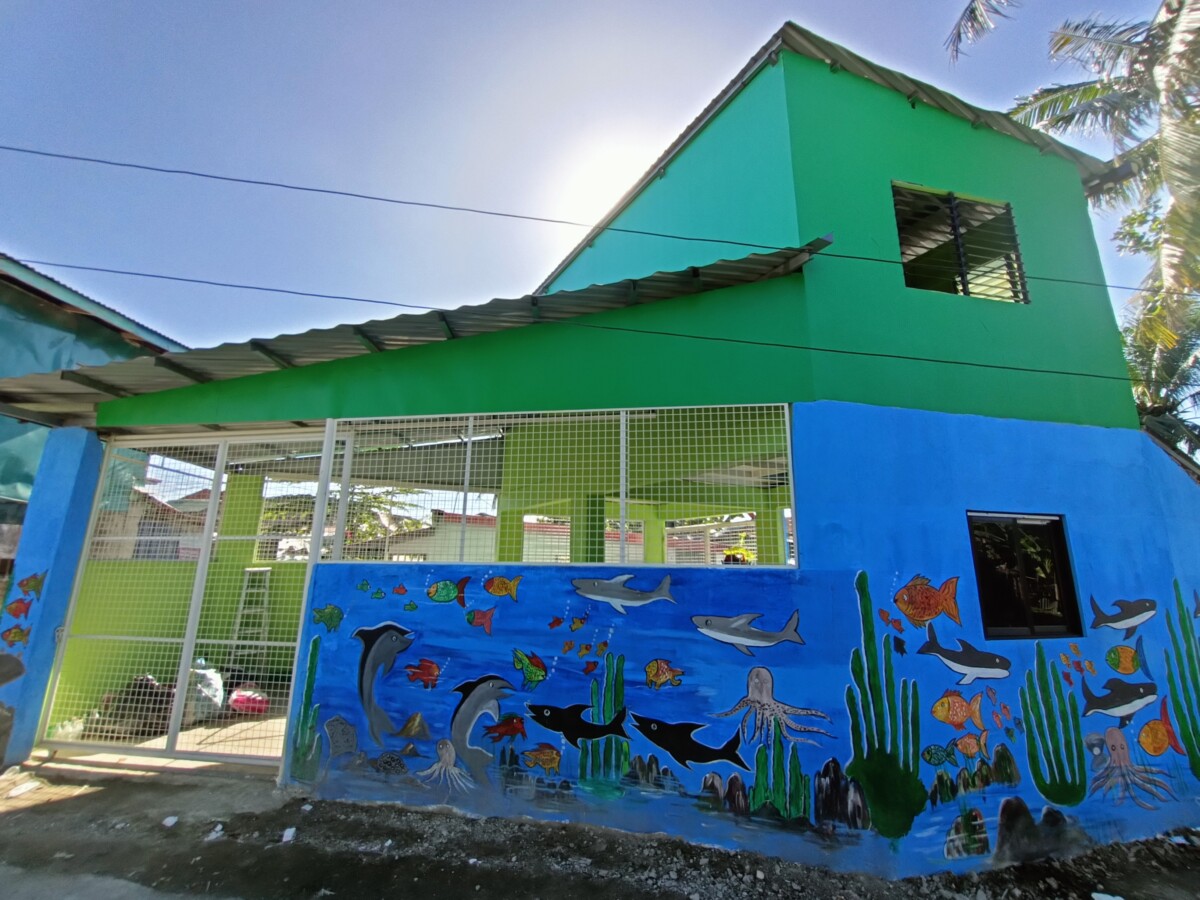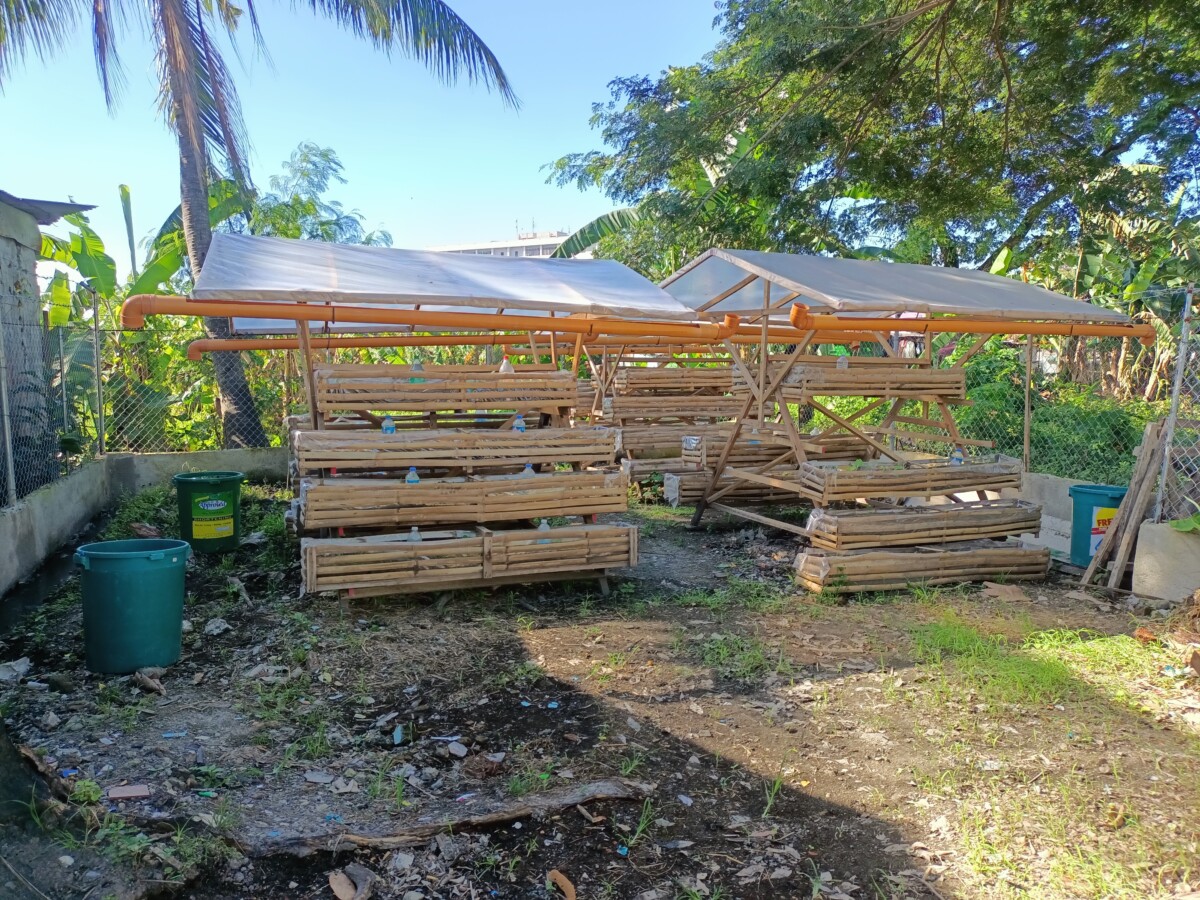Community-driven journey to prevent plastic pollution
Nestled along the stunning Philippine coastline, the local community in the district of Barangay Calicanto in Batangas City has in later years grappled with a staggering influx of plastic waste and pollution.
Consequently, heaps of trash accumulate in the surrounding environment and creeks leading to the Port of Batangas, posing environmental hazards for both people, wildlife, and nature.
However, driven by a shared vision, the Barangay embarked, in 2021, on a transformative journey to turn the tide on plastic pollution in their community. We are following them on their path to a cleaner environment.
From design to dream
Today, Barangay Calicanto is building a brand-new facility aimed to not only prevent plastic pollution in the area, but also create value from waste — driving income and creating job opportunities in the local community.
Through the “Clean Ports, Clean Oceans: Improving Port Waste Management in the Philippines” project, implemented by WWF-Philippines in partnership with the Grieg Group and funded by the Grieg Foundation, workshops were held, bringing together residents and stakeholders from the barangay. The lack of facilities to collect waste was one of the challenges that were brought up in this design thinking workshop.
Czarina Constantino-Panopio, Program Manager of WWF-Philippines' No Plastics In Nature Initiative, highlights the community for their commitment and willingness to find solutions.
“We selected Barangay Calicanto because we saw their dedication to address plastic pollution. This was further strengthened when we did the design thinking workshop, where they were active and ready to do what it takes to solve the problems,” she says.
Now, the people of Calicanto can see the tangible outcome of their work; a brand-new materials recovery facility (MRF).
Enrique Cabasisi, a utility worker in Calicanto, emphasizes the important role of creating awareness among the local residents.
“We need the MRF to teach the youth and the residents how to segregate their trash so they know what to sell and what to recycle,” says Enrique.
Catalyzing Change
The construction of the MRF has been completed and bi-monthly plastic collection in the facility has already begun.

The new materials recovery facility in Barangay Calicanto in Batangas City, Philippines
The MRF serves as a collection point for different recyclable waste, including plastics. Calicanto generates about 0.22 kilograms of waste per capita per day of which 14% are recyclables.
The project also collaborated with the San Jose Sico Multi-Purpose Cooperative, an organization of waste workers, to collect the waste from the MRF and sell them for recycling.
After the completion of the facility, the barangay is committed to handling the management of the MRF moving forward. A person has been assigned to oversee the operations and the barangay will continue to fund the establishment.
Expanding opportunities
With the MRF serving as a catalyst for transformation, the community has set its sights on a new, environmentally friendly goal: cultivating fresh produce through composting.
WWF Philippines engaged Green Space, a social enterprise that conducts bokashi composting, to train the barangay how to convert food waste into compost. The compost will then be used for the MRF’s vertical farm which was built in partnership with the Multi-Sectoral Alliance for Development, a federation of farmers’ groups.

The new materials recovery facility includes a vertical farm where compost made from the residents’ food waste will be used to grow food.
By establishing composting bins on the outside areas of the facility grounds, Acorda hopes to bring more revenue to their business.
“The program also introduced vertical gardening techniques for households to earn extra income,” says Acorda. “This will be a big help because aside from waste, we can have another means of earning income.”
A Blueprint for Tomorrow
The inspiring journey of this coastal community stands as a testament to the power of collective action.
Philippine law requires every barangay to have an MRF with a solid waste sorting station, drop-off center, composting facility, and recycling facility. However,only 30% of the nation’s barangays have one, often due to lack of funds or land.
Thanks to the "Clean Ports, Clean Oceans: Improving Port Waste Management in the Philippines," Barangay Calicanto received the support they needed to establish an MRF and expand more income-generating opportunities for the community.
By leveraging local expertise and innovative thinking, the Calicanto Barangay is on a path towards a more sustainable future free of plastic pollution.
About WWF:
WWF is one of the world’s largest and most respected independent conservation organizations, with over 5 million supporters and a global network active in over 100 countries. WWF's mission is to stop the degradation of the Earth's natural environment and to build a future in which humans live in harmony with nature, by conserving the world's biological diversity, ensuring that the use of renewable natural resources is sustainable, and promoting the reduction of pollution and wasteful consumption.
WWF-Philippines has been successfully implementing various conservation projects to help protect some of the most biologically-significant ecosystems in Asia since its establishment as the 26th national organization of the WWF network in 1997.
For media arrangements, please contact:
Ms. Chezka Guevarra
Assistant Manager for External Communications
09276566436
cguvarra@wwf.org.ph
